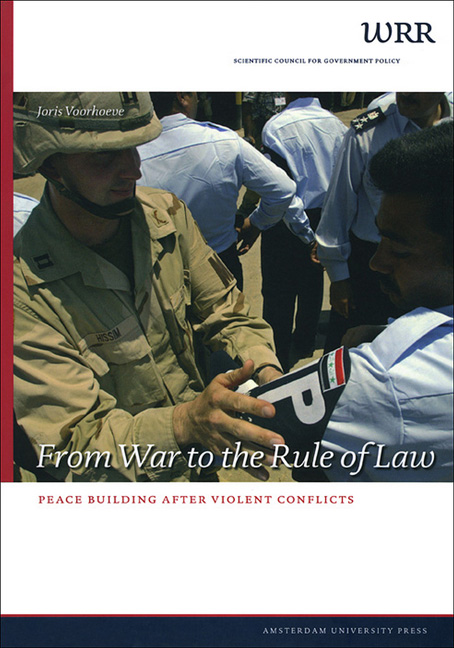Book contents
- Frontmatter
- Dedication
- Contents
- Preface
- 1 Why this Study?
- 2 An Overview of Peacebuilding
- 3 Towards Typology and Theory
- 4 (Re) Establishing Order
- 5 (Re) Building the Rule of Law
- 6 Resources and Costs
- 7 The European Union and Post-Conflict Peacebuilding
- 8 Conclusions and Recommendations
- List of Country Illustrations, Tables, Text Boxes and Maps
- Acknowledgments
- Further Reading
- Some Relevant Websites
6 - Resources and Costs
Published online by Cambridge University Press: 14 January 2021
- Frontmatter
- Dedication
- Contents
- Preface
- 1 Why this Study?
- 2 An Overview of Peacebuilding
- 3 Towards Typology and Theory
- 4 (Re) Establishing Order
- 5 (Re) Building the Rule of Law
- 6 Resources and Costs
- 7 The European Union and Post-Conflict Peacebuilding
- 8 Conclusions and Recommendations
- List of Country Illustrations, Tables, Text Boxes and Maps
- Acknowledgments
- Further Reading
- Some Relevant Websites
Summary
In this chapter, we will look at the means which are potentially available for peacebuilding operations and rule-of-law assistance. What matters most is how to encourage the domestic capabilities for peacebuilding and the rule of law in a country. Foreign aid can be very important; it can encourage but cannot entirely replace for long an absent domestic demand for improvement of the legal order.
INTERNAL RESOURCES
In all countries plagued by war, there is strong demand for peace and justice. The former war leaders may or may not heed these desires, but the population is usually sick and tired of the war and longs for a new future. In most wars, a relatively small percentage of the population was actively engaged in the fighting, while those who did the suffering formed the great majority.
The basic needs, of all people everywhere, are safety of oneself, one's family and friends; safe drinking water, food, shelter, medical help, and a glimmer of hope that an unbearable life will get better. It is important to hold objective opinion polls in the country to measure and show what people want, as this may encourage the leadership to change policies, once confronted with the outcome. If the leadership does not pay attention, polls might still encourage advocates of reform to continue their work and not give up.
Those interested in reform have to identify potential, respected persons who may become leading agents of change. The human resources for a new future are always there, but they need to be marshalled and led in the right direction. They may even form a considerable but not yet organised segment of the population, particularly suppressed, educated persons, returning refugees, the many who kept silent during the past but now see chances to exert some positive influence; all those who were waiting for new, promising leadership. All countries, also the poorest and least endowed, have human and natural resources and comparative advantages that can be exploited more fairly and effectively, to the benefit of the population.
Mobilising people and institutions for reform is the task of a leader. New leadership has to arise from the population after a war. Reformists can be supported by foreign NGOS.
- Type
- Chapter
- Information
- From War to the Rule of LawPeace Building after Violent Conflicts, pp. 127 - 146Publisher: Amsterdam University PressPrint publication year: 2007



